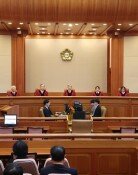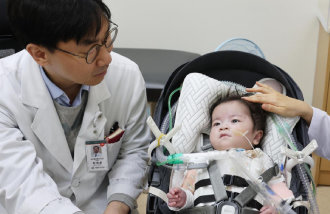Relocation Delay Hurts Pyeongtaek, Gyeonggi Area
Relocation Delay Hurts Pyeongtaek, Gyeonggi Area
Posted January. 06, 2009 06:12,
With the delay of the relocation of U.S. military bases to the Pyeongtaek area, around half of 1,500 rental houses built over the last five to six years for American servicemen sit empty.
Certain builders have drastically reduced rental fees to find tenants, but their losses are snowballing.
The biggest problem is the uncertainty of government policy, said Lee Heon-hyeon, chairman of the Korea-U.S. Real Estate Association consisting of brokers and lessors in the Pyeongtaek area. Nothing can be done about the losses incurred so far, but we hope the government can promptly decide on the year of the relocation, whether it be 2014 or 2016, so that we can plan ahead.
The city of Pyeongtaek, located 50 kilometers south of Seoul, is also facing a dilemma due to the delayed relocation. It must deal with complaints from citizens on the one hand, but cannot express discontent over the governments indecisiveness in setting the exact time of the relocation on the other.
A Pyeongtaek official said, We want the relocation to proceed as scheduled, but we could come off as offending the government if we keep on pressing for an exact timeline.
In northern Gyeonggi Province, home to many U.S. military bases still awaiting relocation, residents have expressed fears that a further delay could slow regional development.
Gyeonggi official Han Bae-soo said, A further delay in the relocation might create a disruption in developing the returned area, and this could slow down development in the entire region. We plan to ask the government to come up with separate support measures to deal with the delay.
Camp Casey and Hovey in Dongducheon each spans more than 14 million square meters. U.S. military bases in the city including the two camps account for 42 percent of the entire city area combined.
Consequently, decent culture and education facilities are absent in Dongducheon while entertainment clubs and money exchanges have flourished since American soldiers are major customers.
Yoo Jun-ho, president of the Association of Shops in Dongducheons Special Tourism Zone, said, We need to know at least when the U.S. Army will leave. They are our main customers so if they leave, we need to change our business to make ends meet. The uncertainty surrounding the delay in the relocation is bad for our business.
In contrast to Gyeonggi Province, Seoul, home to the Yongsan Garrison, seems rather at ease.
A city official said, The construction of the park (on the land to be vacated by the U.S. Army) was originally scheduled to begin at the end of 2012, and the phase I opening was set for 2015. With the two-year delay in the relocation, however, the construction may be postponed accordingly.
We will closely consult with the central government since it is the main builder of the park and complete it in the near future for citizens on the returned land.
A slight delay will not burden the Seoul city government since the transformation of the land where the Yongsan Garrison occupies into a park will be financed by the central government.
The year 2045 was the original deadline for the parks completion to be built phase-by-phase on 2.46 million square meters of land.







